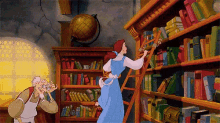Classic novels have long been feared in classrooms. From the different style of language to its unique narrative structure, classics may seem daunting. However, there is a reason classic novels are, well, classic.
These novels challenge readers intellectually, demanding careful attention, critical thinking, and interpretation. Despite being set in different eras, they address universal themes and timeless issues that still resonate today. Understanding the complex messages of classic novels may be time-consuming, but with summer coming up, it is the perfect time to finally give it a chance. So, it's time for us all to take a deep breath and book it as we look at a list of seven classics to start reading.
Let us slide into your dms 🥰
Get notified of top trending articles like this one every week! (we won't spam you)1. "Pride and Prejudice" by Jane Austen
 Credit: Suzy Hazelwood at Pexels
Credit: Suzy Hazelwood at Pexels
Genre: romance
Length: 254 pages
Set in early 19th-century England, the novel follows the spirited Elizabeth Bennet as she navigates the social expectations and romantic entanglements of her time. Balancing the weight of social pressures, love, and personal dignity, Elizabeth struggles with finding a match. The novel explores themes of love, class, and personal growth through Austen's witty and insightful storytelling.
To be fond of dancing was a certain step towards falling in love.

Take the Quiz: Which Literary Fiction Should You Read Next?
Jump into the world of literary fiction with the one of these novels based on your existing favourites.
2. "Animal Farm" by George Orwell

Credit: Matthias Zomer at Pexels
Genre: dystopia, allegorical fiction
Length: 112 pages
This novel will make you question the innocence of farm animals, as the book is a political allegory that uses animals to represent different figures and events during the Russian Revolution. The story begins when the animals, led by the principles of Animalism, decide to revolt against their human owner, Mr. Jones.
As the animals take on leadership roles, they swear to become a fair, equal, and peaceful society. However, when tensions start brewing and the lust for power emerges, how true can they keep to their promise?
3. "Lord of the Flies" by William Golding

Credit: Fabian Wiktor at Pexels
Genre: allegorical fiction, survival
Length: 224 pages
The novel explores the dark side of human nature and the inherent capacity for evil within individuals. The novel follows the story of a group of British schoolboys, who find themselves stranded on a deserted island after their plane crashes during wartime. They are left to fend for themselves and struggle to establish order.
It delves into the themes of power, the loss of innocence, and the fragility of civilization. It serves as a chilling allegory of the potential for savagery and chaos when the constraints of society are removed.
4. "Les Misérables" by Victor Hugo
Credit: Nicolas at Pexels
Genre: romance, historical fiction
Length: 1,462 pages
"Les Misérables" is a sweeping and emotionally charged novel that explores the complexities of human nature and the pursuit of justice and redemption. Set in France, it follows the stories of Jean Valjean and the revolutionists. Jean Valjean, a former convict, is inspired to turn his life around and dedicate himself to helping others; however, Javert, a police officer, is still hunting for him. The book shows the weight of love and sacrifice and how every angel has a past and every sinner has a future.
Not being heard is no reason for silence.
5. "Jane Eyre" by Charlotte Brontë
 Credit: JJ Jordan at Pexels
Credit: JJ Jordan at Pexels
Genre: romance, coming-of-age
Length: 352 pages
"Jane Eyre" follows the life of the bright, relentless Jane Eyre, from her tumultuous childhood to her journey of self-discovery and love. Orphaned at a young age, she is sent to live with Mrs. Reed and her cousins, who treat her cruely.
Nevertheless, she finds joy and escape in books and excels in her studies. As Jane grows older, she becomes a governess at Thornfield Hall, where she meets the brooding and mysterious Mr. Rochester, who seems to be hiding dark secrets. The novel explores the themes of love, independence, and social class, showcasing the resilience and determination of Jane Eyre as she navigates through adversity in search of self-worth.
6. "Call of the Wild" by Jack London
 Credit: Kateryna Babaieva at Pexels
Credit: Kateryna Babaieva at Pexels
Genre: adventure
Length: 104 pages
While we're off on our summer adventures and enjoying the warmth, Buck, a hard-working and kind husky, is facing the cold. "The Call of the Wild" follows Buck, who is forcibly removed from his life in California and thrust into the brutal world of the Yukon during the Klondike Gold Rush. The novel explores themes of survival, instinct, and the primal nature of both animals and humans. It underscores the contrast between the civilized world and the untamed wilderness, emphasizing the inner conflict Buck has as he's torn apart between his loyalty to humans and his innate need for freedom.
7. "The Adventures of Tom Sawyer" by Mark Twain
Credit: Dominika Roseclay at Pexels
Genre: adventure
Length: 230 pages
The story, as the title suggests, follows the adventures of the mischievous and imaginative Tom Sawyer in St. Petersburg, Missouri. His clever mind often gets him out of trouble and chores, but can also be the reason he gets into mischief.
When Tom and his friends discover a murder and become entangled in real-life dangers, they learn lessons about responsibility, consequences, and friendship. The novel captures the essence of childhood adventures and the timeless themes of friendship, morality, and complexities of growing up.
“Homely truth is unpalatable.”
Classics, though difficult to read at times, offer timeless wisdom, rich storytelling, and deep insights into humanity. They can transport us to different eras, cultures, and perspectives, broadening our understanding of the world. Classics ignite our imagination, enhance critical thinking, and provide a shared literary heritage. So.... let's not dawdle any longer and grab a book to read under the sun!
















.jpeg)